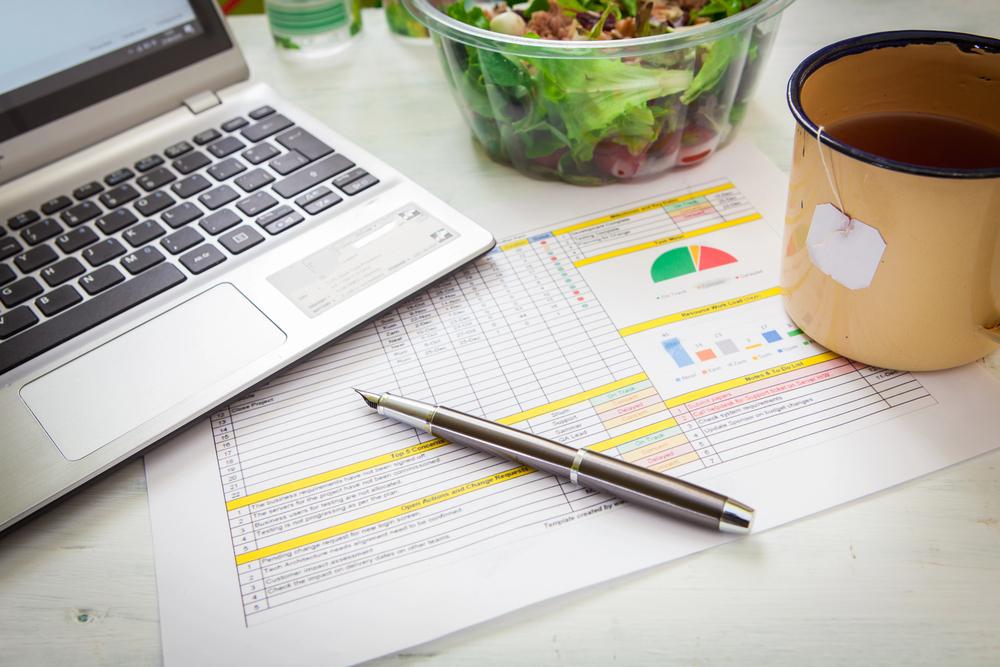The Ultimate Tax Planning Guide for South Jersey Restaurants: Stay Compliant and Save
Did you know that the average restaurant in the U.S. misses out on $10,000 in tax savings each year? Is your South Jersey restaurant paying more in taxes than it should? With complex tax laws and industry-specific challenges, many restaurant owners struggle to stay compliant and reduce their tax burden.
At TMD Accounting, we specialize in helping restaurants across South Jersey navigate complex tax regulations, maximize deductions, and avoid costly mistakes. This guide will show you how to stay compliant, reduce your tax bill, and reinvest those savings back into your business.
Understanding Tax Obligations for Restaurants in South Jersey
Staying compliant with tax regulations is one of the biggest challenges restaurant owners face. You need to juggle federal, state, and local tax obligations, including:
- Federal Income Tax: The IRS requires restaurants to report all income and pay taxes based on profits. This includes tips, employee wages, and sales revenue.
- State and Local Taxes: New Jersey imposes state income tax on businesses, and your restaurant may also be subject to local taxes, depending on your municipality.
- Sales Tax: Restaurants must collect sales tax on food and beverages sold. In New Jersey, the state sales tax is currently 6.625%, and remitting these taxes regularly is crucial to avoid penalties.
- Payroll Taxes: Restaurants are required to withhold and pay payroll taxes for their employees, which include federal income tax, Social Security, and Medicare contributions.
Failing to comply with any of these obligations can lead to costly penalties, fines, and even audits. Staying ahead of these tax obligations ensures that your restaurant remains compliant and avoids unnecessary headaches.

Maximizing Deductions for Restaurant Owners
Maximizing Deductions for Restaurant Owners
Every dollar saved through tax deductions is a dollar that can be reinvested into your restaurant, helping you grow your business. Here are some key deductions available to restaurant owners:
-
Food and Beverage Costs
The cost of goods sold (COGS) for food and beverages is deductible. Keep detailed records of inventory purchases, wastage, and spoilage to calculate accurate deductions. This can significantly lower your taxable income.
Pro Tip: Use accounting software to track inventory levels and food costs in real time, ensuring accuracy in reporting COGS.
-
Employee Benefits
If your restaurant offers health insurance, retirement contributions, or other benefits, those costs are deductible. These deductions not only save on taxes but also improve employee retention and morale.
-
Depreciation of Equipment
Equipment such as ovens, refrigerators, and point-of-sale (POS) systems depreciate over time. The IRS allows you to deduct the depreciation value of these items, reducing your taxable income.
Pro Tip: Consider taking advantage of Section 179 to deduct the full purchase price of eligible equipment in the year it’s bought, providing a larger deduction upfront.
-
Meals for Employees
Meals provided to employees during shifts or when they work overtime are deductible. Keep records of these expenses to ensure you can claim this deduction accurately.
Payroll and Sales Tax Compliance
Failure to comply with payroll and sales tax regulations can lead to costly penalties or even audits. Here’s how to stay on top of these obligations:
-
Payroll Tax Compliance
Implement a tip-reporting system to ensure that all employee tips are accurately tracked and reported to the IRS. Failure to report tips properly can lead to underreported income and penalties for both the employee and the business.
-
Sales Tax Compliance
Sales tax must be collected on all taxable food and beverage items. Inaccurate collection or failure to remit sales tax to the state can result in significant fines. Ensure that your restaurant’s point-of-sale (POS) system is set up to automatically calculate sales tax on each transaction. Regularly reviewing and remitting these taxes is essential to staying compliant with New Jersey regulations.
-
Tip Reporting
Tips are considered taxable income for employees, and it’s your responsibility to ensure that they are properly reported. The IRS has strict guidelines on tip reporting, and failure to comply can lead to penalties for both employees and employers. Encourage employees to report all tips, and use payroll software that tracks and reports tips automatically.
Strategies for Year-Round Tax Planning
Don’t wait until tax season to start thinking about your taxes. Year-round tax planning ensures that you’re making the most of available deductions and staying compliant. Here are a few strategies to consider:
-
Quarterly Estimated Tax Payments
Restaurants often experience income fluctuations throughout the year, making it important to pay estimated taxes on a quarterly basis. This helps avoid underpayment penalties and smoothes out your cash flow.
Pro Tip: Set aside 25-30% of your monthly profits for estimated taxes, ensuring that you have enough to cover your obligations at the end of each quarter.
-
Track Expenses in Real Time
Use accounting software or cloud-based systems to track expenses, deductions, and credits as they occur. This gives you a clear view of your financial situation throughout the year, helping you identify tax-saving opportunities early on.
-
Consult a Professional Accountant
Tax laws change frequently, and staying on top of them can be overwhelming. By consulting a professional accountant who understands the restaurant industry, you can ensure that you’re taking advantage of all available deductions and credits, staying compliant, and minimizing your tax burden. Professionals can also help you navigate audits, payroll issues, and sales tax compliance.
Case Study: One family-owned restaurant in South Jersey saved over $15,000 in taxes in a single year by implementing a proper tracking system for employee meals, inventory, and equipment depreciation. This allowed them to reinvest those savings into expanding their kitchen and improving customer service.
Conclusion
By following these tax planning strategies, you can reduce your tax burden, keep your restaurant compliant, and save money to reinvest in your business. Effective tax planning is key to maintaining a healthy cash flow and avoiding costly mistakes that can jeopardize your restaurant’s financial future.
Ready to unlock more tax savings for your South Jersey restaurant? Contact TMD Accounting today for a free consultation and learn how we can help you maximize tax savings while staying compliant year-round. Don’t wait—schedule your consultation before the next tax quarter and start saving immediately!
Bonus: FREE Download
📥 Download Our Free Guide:
-
- “7 Accounting Metrics Every Restaurant Owner Must Track”—and start improving your bottom line today!
- 5 Ways to Cut Costs and Increase Profit Margins for Your Restaurant
What tax planning strategies have worked for your restaurant? Share your experiences in the comments below!

